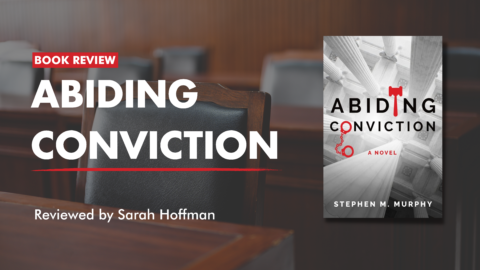The voice on the helpline message for the Bar Association of San Francisco’s (BASF) Conflict Intervention Service quaked with fear: “Please help me. I’m an elderly gay man with HIV. My roommate brings a stranger home every night. He laughs when I plead for him to follow the rules. If I catch the virus, I will die.”
It was late in the afternoon on Friday the thirteenth this past March. As panicked calls from distressed people cascaded into the helpline, the Conflict Intervention Service (CIS) faced its greatest challenge.
Earlier in the day, San Francisco Mayor London Breed had announced an eviction moratorium, relieving many residents but triggering confusion at the same time. An unprecedented shelter-in-place order was rumored. It followed on Monday, March 16, effective immediately across the Bay Area.
When people are frightened, they hunker down. They lash out. They act out. When they are jammed together in unwise space-sharing arrangements, fear and trauma make things unmanageable and sometimes dangerous. CIS has helped hundreds of desperate people trapped in bad situations avoid eviction and homelessness through its many service offerings.
The advent of COVID-19 tested CIS, starting with a huge increase in help requests. Rapid response is the program’s touchstone. We guarantee every help request a touchback within twenty-four hours, seven days a week, 365 days a year. Service delivery begins with the first contact. Could we keep up?
John W., the terrified elder with an irresponsible roommate, was stunned when CIS returned his call twenty-two minutes later. He had made a dozen calls over three days before an attorney with the Aids Legal Referral Panel suggested he contact CIS. Terrified, worn out, despairing, John’s surprise was soon matched by the empathy he received from a CIS Conflict Navigator who listened not only for the details but also for the emotions driving the conflict and distress. CIS presented a communication plan for constructive dialogue to address the conflict.
Following the plan, John posted an urgent message on his roommate’s door. The much younger man, Kyle, subleased a room in John’s two-bedroom, one-bath flat in Cole Valley. The message was firm—that unless strangers stopped entering the home, John would need to take further action—while offering an olive branch in CIS language. Kindly and respectfully, John asked Kyle to join him in a facilitated conversation to discuss his concerns.
Deploying ombuds strategies, a CIS attorney-mediator met with Kyle by Zoom on Saturday morning, explaining John’s sincere concerns, and the potential consequences Kyle faced under the circumstances, such as legal action or a restraining order. Having John’s sentiments conveyed without judgment and in a way he could hear them, Kyle owned up to his dismissive attitude about John’s health concerns. A graduate student at UCSF, he also possessed the maturity to change up his game. He agreed to meet with John later in the day.
While Kyle engaged with CIS, one of our mental health licensed mediators prepared John for a direct conversation with his roommate, about whom he had very high emotions. Later that day all four participants were linked up via video conference. Within thirty minutes, Kyle thought it best to take living together during the heightened period of contagion off the table and offered to stay with friends until the crisis passed, while keeping up his rent payments to John. Through swift intervention, entirely online, two members of the LGBTQ community bridged their generational differences, honored their common interests and concerns, and entered into a practical solution for the moment.
The resolution was memorialized in a mediation agreement that was drawn up during the video conference. It was transmitted, signed, and distributed among everyone entirely online, within ninety minutes following the meeting.
These stories are woven from the fabric of the COVID-19 global pandemic, which has caused a level of economic instability comparable only to the Great Depression. At the time of this writing, over 100,000 people have died from the disease, and over 40 million claims for unemployment have been filed nationally. Food banks are overrun; entire industries brought to a standstill.
In San Francisco, residents and businesses were early to shelter in place and shut down. Eviction moratoria for residents and business owners went into effect immediately to defer rent payments in attempts to stabilize housing and the significant small business community that makes up nearly all of the businesses in the City. Nonetheless, the COVID-19 effects were and will be felt here for a while to come. What happens when those deferred rent and mortgage payments come due? CIS is already preparing.
In late 2016, BASF was awarded the opportunity to design and implement a novel community-focused housing mediation program through grant funding provided by the City and County of San Francisco through the Mayor’s Office of Housing and Community Development. From its inception, CIS departed from traditional mediation, looking to press the boundaries of facilitative conflict engagement in favor of relationship restoration and harm reduction between tenants and landlords. CIS offers creative, flexible, nimble, and fast interventions to de-escalate the conflict. Since its first cases in January 2017, CIS has grown four-fold to assist monolingual ‘mom and pop’ landlords, provide mediation support to Right to Counsel eviction defenders, and engage with specific larger-scale public housing environments in the Fillmore/Western Addition districts of San Francisco.
In the fall of 2019, CIS expanded its role with the Tenant Landlord Clinic (TLC) sponsored by the Lower Polk Community Benefit District. Established via funding spearheaded through the Office of Supervisor Aaron Peskin in late 2017, the TLC is a unique coalition that includes CIS, the Center for Negotiation and Dispute Resolution at UC Hastings College of the Law and the San Francisco Apartment Association, with referrals available to tenants and landlords who seek dispute resolution from CIS and legal help through BASF’s Lawyer Referral and Information Service. Until 2019, the TLC program had only been available to intervene in the district’s residential conflicts; when last year funding became available to complete the Supervisor’s full vision to include the same services to address commercial tenant-landlord conflicts, CIS expanded to serve the small merchant community in the Lower Polk district. Under COVID-19 shelter-in-place protocols, the demand for CIS small merchant services quickly exploded. Commercial tenants and landlords both have sourced CIS for ombuds engagement and conflict intervention consultations, in which they receive communication coaching, negotiation approaches, and referrals to legal assistance.
On Sunday, March 31, CIS help requests spiked, particularly from residents and small merchants of the Lower Polk district, which had been saturated with postcards announcing services from the Lower Polk Tenant Landlord Clinic. April rent was coming due and people who had just been laid off from work were panicking. Fortunately, CIS is open every day. De-escalating tensions quickly is critical and constructive intervention should not wait. In the months that would follow, CIS increased staff availability in the days before rent was due to meet the inevitable surge in help requests.
Fear of not making rent is no less troubling for commercial tenants suddenly devastated by mandatory business closures. Longstanding business owners and immigrants in particular often consider making timely rent payments as a point of honor. They were traumatized by laying off loyal employees; some faced the loss of their homes as well as businesses.
Fredericka is an example. For 36 years the artist and Catalan immigrant has operated a multimedia production company and gallery in the Lower Polk district. Her business was already stressed by changing consumer habits and the effects of gentrification when the shutdown hit. She reached out to the office of Supervisor Aaron Peskin for assistance on March 29; CIS connected with her that evening and delivered services over the next sixty days.
Fredericka had received generous assistance from her third-generation family landlord in the past, but she deeply feared telling him that she could not make April’s rent. CIS provided Fredericka’s landlord information on the Mayor’s commercial eviction moratorium and offered to facilitate a rent deferment conversation. While the landlord declined mediation, contact from CIS helped the parties relax and begin constructive conversations directly with each other about the future.
This small merchant leased retail space on the street for her gallery and separate basement space for her production facility. Fredericka was already moving her business online and had diminished need for the gallery. With communication coaching from CIS, she and the landlord developed a plan to reorganize her space so she could survive the shutdown and thrive afterward. The landlord plans to renovate her street space and re-lease it at market rent. With collaboration and CIS guidance on strategies for communications, calamity catalyzed opportunity for landlord and business tenant alike.
Two nonprofit theater groups and a social service organization were among other businesses that made urgent requests for help from CIS. Our response included corresponding on the weekends and late in the evenings. For the most part, CIS has provided merchants and commercial landlords robust ombuds support along with a detailed review of the moratorium rules, and referrals to organizations providing legal services, negotiation strategy advice, and communication coaching.
CIS service activity has identified a pattern among business tenants. All too often, they would rush to make large decisions (like permanently closing a business) too quickly, without proper consideration of the situation from a place of detachment. We work hard to restore the calm needed so a business, its employees, and the landlord can work through challenges together. Above all, CIS interventions helped put the fear impulses of commercial tenants in check, to great effect.
Despite a significant surge in help requests driven by COVID-19 related disputes, CIS maintained its twenty-four-hour response guarantee throughout the crisis. Over 200 San Francisco residents received substantial services during the first two months of shelter-in-place; many more received helpful consultations and needed referrals. The team stretched its limits, but anyone needing help got it. This remarkable program response was made possible from a project design that set up for coordinating services quickly on the first call and leveraging a roster of independent mediators with disciplines in social work, psychology, and law, so an array of approaches would be possible. Innovative thinking from the legal tech and online dispute resolution movements also informs CIS program practices.
From a small pilot—focused on addressing conflicts that lead to eviction in supportive housing communities—CIS has grown into a robust program that provides a comprehensive continuum of conflict engagement and dispute resolution services with innovative modalities. These include ombuds investigation, situational analysis, communication coaching, mediated negotiation, and formal mediation delivered online and in person. CIS also facilitates conversations among traumatized residents in large housing communities informed by cultural humility and restorative justice practices. It provides ‘best practices’ training and education around how to create and maintain successful tenant-landlord relationships. CIS readies now for the future, for the continuation of an already successful service delivery model that seamlessly fits that future, with free and low-cost services. CIS looks forward to restoring tenant-landlord relationships wherever needed and navigating conflict to keep residents in stable homes, and business owners in their successful locations.
Carole Conn is the Director of Public Service Programs for BASF’s Conflict Intervention Service, Alternative Dispute Resolution and Lawyer Referral and Information Service. She brings her passion and innovative program development experience to expand access to justice and resolution, however possible.
Roger Moss provided program design for CIS and serves as its supervising mediation counsel. A business career in retail real estate informs his approach to conflict engagement. Roger is an active member of the bar in California and Washington, and has served as the chair of the Association for Dispute Resolution of Northern California.




